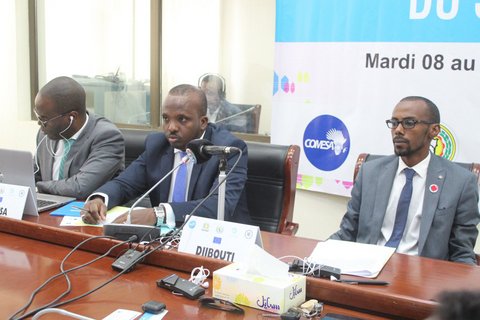
Addressing Regulatory Challenges to Attract Investments in Energy
Djibouti, Friday, October 10, 2019: The past two decades have witnessed transformation of the electricity market in Africa following the gradual opening, liberalization and reform of national electricity markets. A fundamental component of the transformation has been the establishment of national regulatory institutions tasked with independently regulating and overseeing their respective electricity sectors.
With investors seeking transparency, predictability and good governance in sectors in which they operate, most African governments have made tremendous strides in recent years in establishing robust regulatory frameworks and institutions for their electricity sectors; however, progress has been uneven across the continent.
The present regulatory institutional outlook in the eastern, southern and Indian Ocean region (EA-SA-IO) is varied as some of the countries like South Africa Namibia, Kenya and Uganda have full autonomy over the energy sector, which exhibits a reasonable degree of commercialization or privatization.
In other countries such as Ethiopia, Sudan, Mozambique and Angola, energy regulators exhibit a semi-regulatory autonomy with other regulatory functions still vested with the Government, whereas there are no active regulators in Comoros, DR Congo, Djibouti, Eritrea and Libya.
In its quest to improve the energy sector, the project on Enhancement of a Regional Energy Market in Eastern Africa, Southern Africa and the Indian Ocean (ESREM/EA-SA-IO) is conducting national-level workshop on regulatory policy, autonomy and governance. The workshop are designed to map out the nature and level of assistance required by specific Member States in establishing national regulatory institutions.
The latest was a three days’ workshop conducted in Djibouti from 8 – 10 October 2019. It was attended by high-level officials from Ministries responsible for energy, (and other relevant government officials), utilities, consumer associations, and the academia in Djibouti.
Institutional frameworks
The main objective is for the target audience to appreciate the role and importance of establishing energy regulatory and institutional frameworks in supporting Governments’ long-term objectives of providing affordable and reliable energy to its citizens.
COMESA through its Regional Association of Energy Regulators for Eastern and Southern Africa (RAERESA) is the lead agency in the implementation of the project.
In Djibouti, the Permanent Secretary in the Ministry in charge of Energy Mr Mohame Kileh Wais, and his counterpart in the Ministry of Trade, Mr Ali Daoud, and COMESA Energy Economist, Mr Malama Chileshe who represented the Chief Executive Officer of the RAERESA addressed the workshop.
Mr Wais indicated that Djibouti’s Vision 2035 places high priority on refining the various governance structures in the energy sector which will tap into other sources of energy such as wind, solar, and geothermal.
In his remarks, Mr Malama observed that building strong and effective regulatory frameworks and institutions was one way of paving the way for investment flow in the energy sector.
“Investors look for transparent, fair and predictable environments for their investment,” he said noting that, even without autonomous regulators, Djibouti had taken major strides towards strengthening regulatory and institutional frameworks.
The ESREM/-EA-SA-IO project is a seven million euros initiative funded by the European Union under the 11th European Development Fund.








